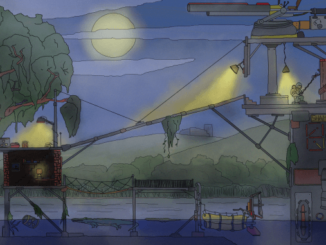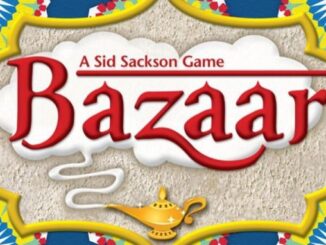
As a tie-in with the Make & Break issue of Ludogogy, we organised a number of events about Playtesting and Prototyping, starting with a panel discussion on the 14th September and culminating with a demo of Nutstarter on the 25th.
I am immensely gratefully to all the wonderful contributors to Ludogogy who participated in this tie-in event and gave generously of their time, expertise and playfulness to make it such a great event, and a useful resource into the future.
I hope you enjoy what you see below, and that you will take the time to connect with these game creators and find out more about what they do.
The panel disscussion on 14th September saw great tips and insights from (L to R, top to bottom) Andy Yeoman, Sarah Le-Fevre, Joe Slack, Laxman Murugappan, Mohsin Memon, Mihaela Danciu, Erik Agudelo, and Andrew Lau.
On the 19th September we were lucky enough to run two game demo sessions, The first was with Mohsin Memon, who took us through a thrilling round of Evivve, the Leadership Game. Did the team win or lose? You’ll have to watch and see. You can also read Mohsin’s other articles.
The second session had the players/learners running a farm in a round of So Farm So Good. This was run by one of the game’s creators, Abhilash Purohit. If you want to know more about how this game was created, read this article from Abhilash.
On 21st September, we got the opportunity to learn about creating our own worlds, courtesy of Eduardo Nunes and Bruno Gavaia. In a fascinating session we looked at a number of free resources which can be used to generate maps, narrative, player characters and even currency. We learnt how learning outcomes can combined with narrative to create compelling quests, with which learners will eagerly engage. Make sure you get time to read Eduardo’s other articles, about his game ‘Liber Domus’.
The 22nd September saw two appearances in one day by long-time friend of Ludogogy, Terry Pearce. First of all, he took us through his latest project, a set of practical and beautiful cards which help learning professsionals put more play into their learning designs. You can read Ludogogy’s review of these cards here.
… and then a couple of hours later he was back, along with Matt Stevens, Ben Stevens and Jessica Roberts of Lessons Learned Simulations and Training, to playtest the Humanitarian Crisis Game. If you like the idea of a game which has a mechanic based on Maslow’s pyramid, then this is one for you. You can read Terry’s articles for Ludogogy here.
Erik Agudelo is soon to launch his innovative learning design tool, Toolbox 4 Creativity (TB4C) on Kickstarter. But he stopped preparing that for just long enough on the 23rd of September, to host a session showing how the principles behind that idea work. If you want to find out how the affordances of game design can be used to create a deep learning experience for learners in any topic, then this session is for you.
On Friday 24th September, we experienced two very different games, with very different approaches to equally serious issues. Andy Chong Brought us Fishy Business, a game where your team can learn about running a sustainable business by harvesting the bounty of the ocean. Massive Kudos, too, to Andy for creating a beautiful rendition of his game in Miro, which as anyone who has attempted this will know is, as Andy put it ‘A Boss Level Challenge’
Richard Schreiber of Unite2Games has an important mission – preparing young people to be the leaders of tomorrow. His Ubuntu Game strives to tackle issues of Diversity and Inclusion by prompting teens to engae with each other through a series of questions and quests – each of which has the potential to be a deep conversation-starter.
Our final day of live sessions for the Make & Break event kicked off with a very innovative application for a game – the conversations we all need to have when onboarding a customer and getting to the bottom of what it is they want to achieve through working with us. Laxman Murrugappan, Mihaela Danciu and Alejandro allowed us in at a very early stage in the development of their game – which seeks to build this important realtionship between supplier and client, by having them prepare a delicious feast together.
And last but by no means least, Antonis Triantafyllakis brought us Nutstarter, a pun-fuelled quest to guide a colony of squirrels through the process of raising funds (acorns) from their community to build a Nutapult (or Trenutchet (like I said – puns) in order to defeat a marauding dragon who wants to steal their winter stash of nuts. If the crowdfunding sounds familiar, so it should. This is a learning game about running a Kickstarter campaign.





Be the first to comment